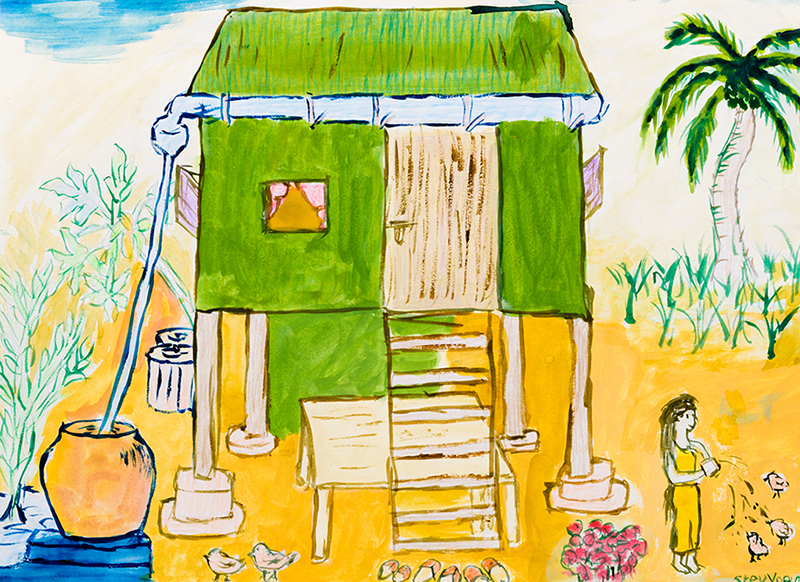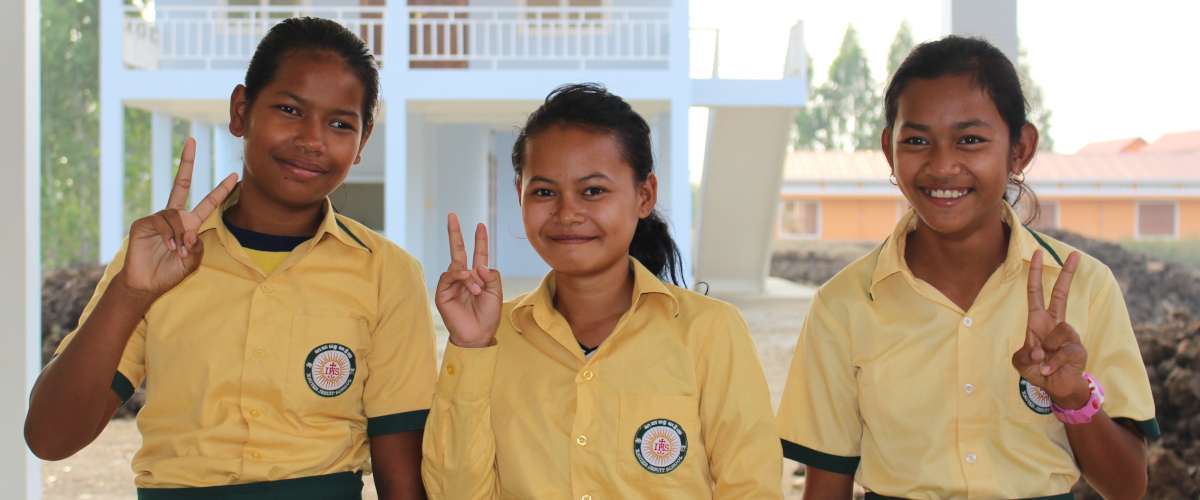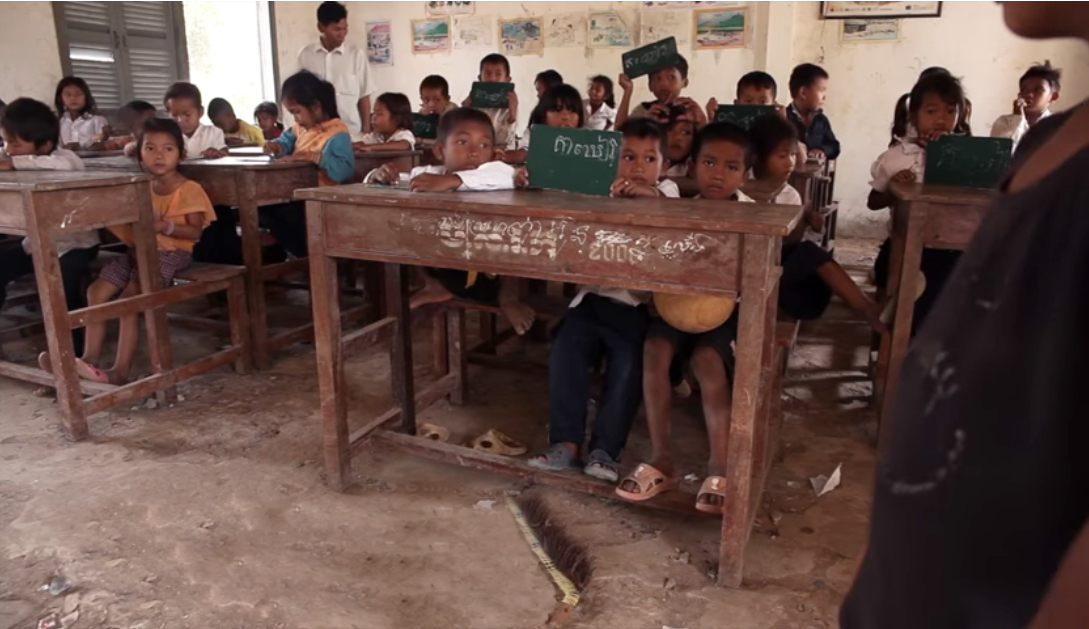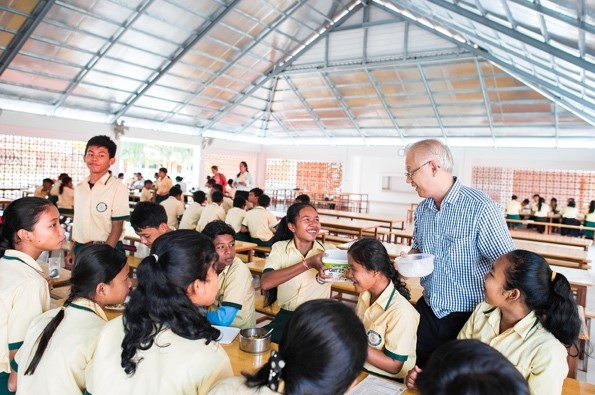It has been 20 years since the surrender of the Khmer Rouge, but Cambodia remains deeply scarred by decades of war and conflict. One of the poorest countries in the world, it has vastly inadequate healthcare and education infrastructure. Just one in four young people finish high school and even fewer in rural communities. Sometmes children as young as 10 years old engage in unsafe and heavy work, labouring on construction sites or farms. Even if children stay in school, the standard of education in government schools is extremely low. Students at 11 or 12 years old often still can’t read or write.
Sophea is one of many Cambodian children struggling to get an education. She lives in a rural area with her mother Mony, a single parent, who had little education herself and works as a day labourer, often travelling great distances to find employment. To educate her four children would cost $4 a day, or 80 per cent of her income. She faces a choice no one should have to make: Should I feed my children or educate them? Mony’s children, like so many others, know they must help out from an early age. The eldest child usually stops schooling to help supplement the family income. Sophea had started government primary school but could not attend regularly. She and her older brother had to find work to help Mony care for their two younger siblings.
One day Jesuit Service Cambodia (JSC) found Sophea in a bottle factory working with her mother. JSC’s outreach team travels around to poor villages in search of families that need help. They identified Sophea as a scholarship candidate for Xavier Jesuit School.
In 2015, the Jesuits opened Xavier Jesuit School (XJS) in Banteay Meanchey, one of the poorest provinces in Cambodia.
“Our goal is to convince students that you sacrifice a few years now, but then you can help not only yourself, but your family,” says Fr Quyen Vu SJ, the school’s director. “Through education these students can go on to have skills, a career, a profession.”
The school encourages independent thought instead of the usual rote-learning taught in Cambodian schools. It strives to empower students, strengthening their hearts and minds so they can learn, grow and contribute to the new future of Cambodian society.
In addition to traditional subjects like mathematics, English, chemistry, physics, biology, history, geography and agriculture, students also learn Khmer, music and art.
Currently 530 students attend XJS from kindergarten to Year 12. Within three years, Fr Quyen hopes to increase that to 1,210 students. XJS is committed to serving the poorest of the poor with at least 20 per cent of the student cohort to receive free education through scholarships, such as those provided by Jesuit Mission Australia.
Scholarships ease the burden for very poor families. In the short-term, families have the benefit of one less mouth to feed, while in the long-term young people help lift their families out of poverty as they use their education to become teachers and future leaders.
Sophea had a tough first year at school. She was 16 but still in Year 7, which meant she had to study with peers three or four years younger than she was and often academically more advanced. She also struggled with her guilt about leaving her mother and younger siblings.
But Mony’s vision for her daughter is strong. She encouraged Sophea to be brave and to dream of a worthwhile future. After a year, Sophea began to take younger children under her wing, and soothe their worries with her jokes and games. Today the change in her is dramatic.
“She is so full of joy!” reports Fr Quyen. “Her hard work and determination are paying off.”
Two years ago Sophea was working as an unskilled labourer. Now, she’s thriving.

Recently, Sophea won an international environmental drawing contest. This is her award-winning illustration of life in Cambodia.
To learn more about Xavier Jesuit School and the support provided by Jesuit Mission Australia, visit https://jesuitmission.org.au/program/xjs/









